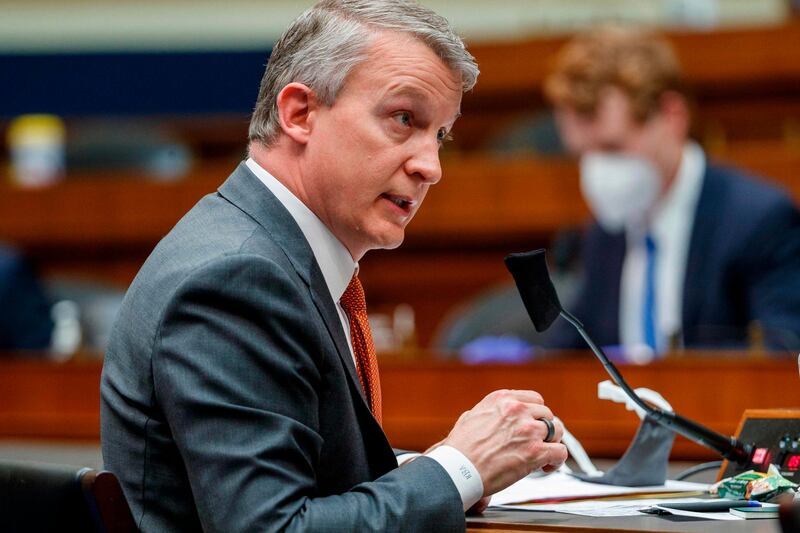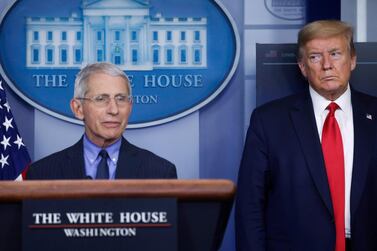The recently fired head of a leading US vaccine agency warned on Thursday that the country could see its “darkest winter in modern history” because of an inadequate response to the coronavirus pandemic.
Dr Rick Bright was removed as director of the Biomedical Advanced Research and Development Authority in April after casting doubt over the use of an anti-malarial drug promoted by US President Donald Trump for the treatment of Covid-19.
"Our window of opportunity is closing," Dr Bright said in testimony to the House energy and commerce committee.
"If we fail to improve our response now, based on science, I fear the pandemic will get far worse and prolonged.
"Without better planning, 2020 could be the darkest winter in modern [US] history.”
Mr Trump described Dr Bright as “a disgruntled employee, not liked or respected by people” in a post on Twitter.
The former official said the lack of planning extended to vaccine preparedness.
Dr Bright said the US did not have a plan to distribute a vaccine for the coronavirus "in a fair and equitable manner”.
"We have limited doses and we haven't scaled up the production,” he said.
Dr Bright told Congress he knew there were shortages in medical supplies before the outbreak and that he brought it up with the leadership at the Health and Human Services department.
"I pushed that forward to the highest levels I could in HHS and got no response," he said.
"From that moment I knew we were going to have a crisis."
Dr Bright said he received expletive-laden expressions of concern from a mask supplier while he was in office.
"We're in deep [trouble]. The world is. And we need to act,” he quoted the supplier as saying in one email.
The US has had the highest number of infections and deaths from the pandemic, on Thursday reporting more than 1.4 million cases and nearly 85,000 deaths on Thursday.
The Institute for Health Metrics and Evaluation increased its projection to 147,000 deaths in the US by end of August, 10,000 more than last week.
On Thursday, the US Labour Department reported that another 3 million people had filed for unemployment, taking the total to 36 million.
Some states have begun to ease lockdown restrictions to reverse the economic toll from the pandemic, even as health officials warn that a rush to reopen could lead to another outbreak.
New York Governor Andrew Cuomo said some parts of the upper state would reopen on Friday after meeting the criteria in case numbers and medical capacity.
Also on Thursday, Republican Senator Richard Burr stepped down as chairman of the Senate intelligence committee after an investigation into his stock trading before the pandemic.
Senate majority leader Mitch McConnell confirmed Mr Burr’s plans to step down effective on Friday.
The FBI has seized Mr Burr's mobile phone as part of the Justice Department investigation, the Los Angeles Times reported.
The senator is accused of selling almost $1.7 million (Dh6.2m) in stocks shortly before the economic downturn from the pandemic hit US markets.








